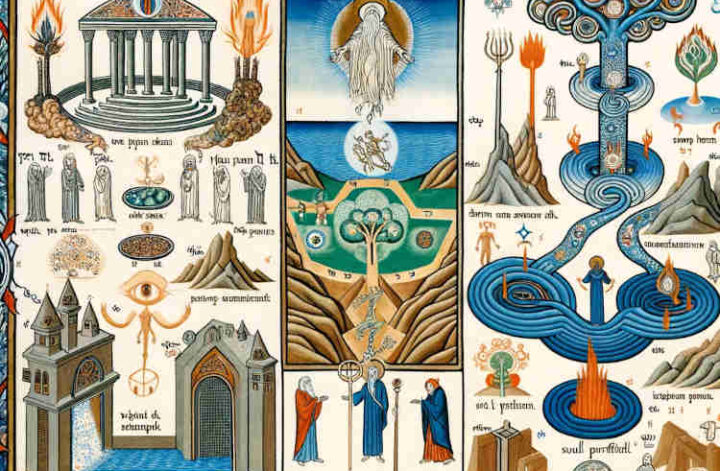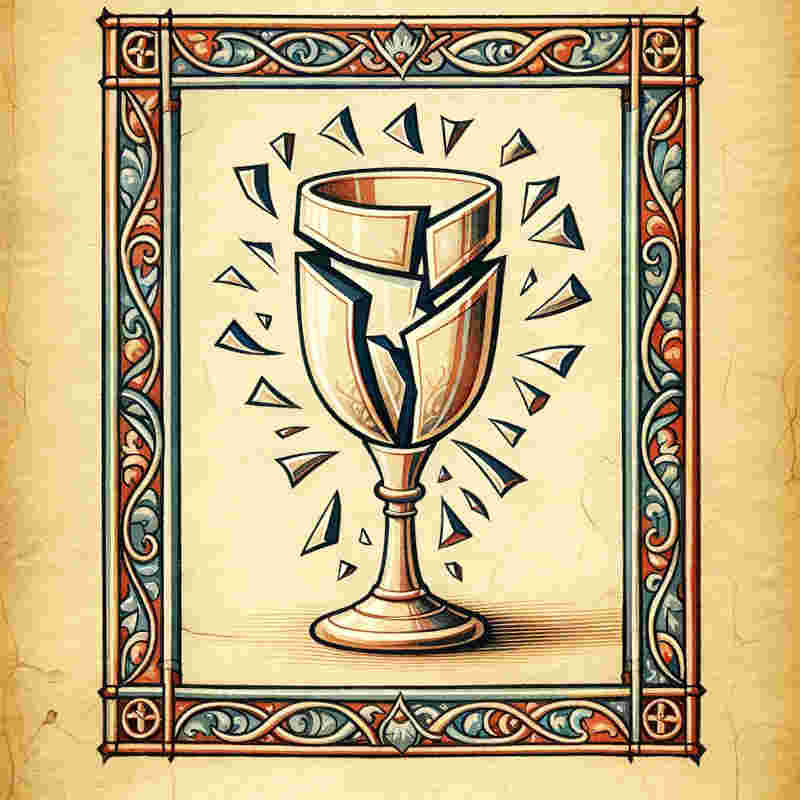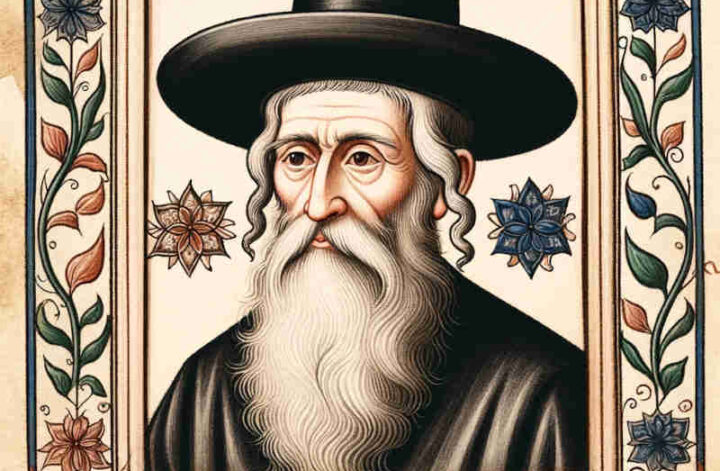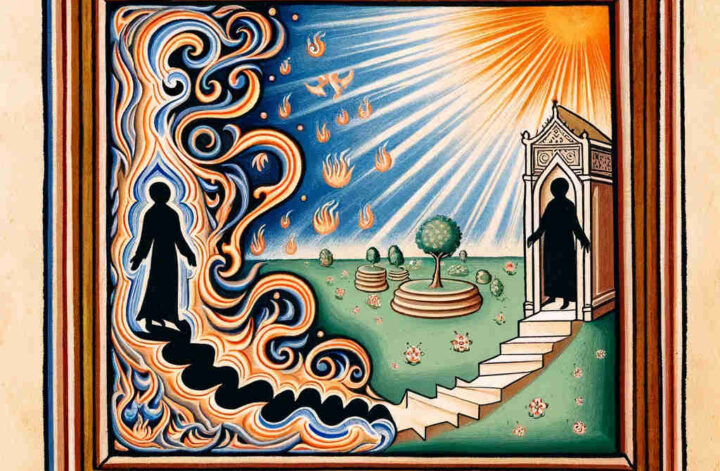Inquiry Into Jewish Eschatology
Email from Leah Bernstein: “Dear Rabbi Joshua, I’ve been exploring different religious beliefs about what happens after death. I understand various religions have clear doctrines about the afterlife, but I’m not sure where Judaism stands on this. Do Jews believe in an afterlife?”
Response from Rabbi Joshua
Shalom Leah, your question is one that touches the heart of spiritual life and the human experience. Judaism does indeed have concepts of the afterlife, though they might not be as emphasized or detailed as in some other religions.
Jewish Concepts of the Afterlife
The Jewish tradition teaches of an afterlife, where the soul is believed to continue its existence after the physical death of the body. This belief is rooted in various scriptural sources and rabbinic teachings. The afterlife in Judaism, often referred to as “Olam Ha-Ba” (the World to Come), is seen as a place where the soul undergoes a process of purification.
The Soul’s Journey After Death
The Talmud and other rabbinic writings discuss “Gan Eden” (the Garden of Eden) and “Gehinnom” (often translated as purgatory), which are thought to be states of existence for the soul after it departs from the body. Gan Eden is considered a place of rest and peace for the righteous, while Gehinnom is a place of purification for souls that were not righteous in their earthly life.
Resurrection and the Messianic Era
There is also a belief in the eventual resurrection of the dead (Techiyat Ha-Metim) in the Messianic era. This is one of the principles of faith as outlined by the medieval Jewish philosopher Maimonides. However, the details of this belief are not explicitly defined and are often a matter of personal or communal interpretation.
Diversity of Belief within Judaism
It’s important to note that within Judaism, there is a diversity of thought regarding the afterlife. Some Jewish movements, especially in the modern era, may hold different views on the subject, emphasizing ethical and moral living in the present world as the primary focus of Jewish life.
Conclusion
Leah, while the Jewish afterlife may not be as central to Jewish thought as it is in some other religions, it remains an essential part of the traditional Jewish belief system. It provides comfort and context to the cycle of life and death, reinforcing the importance of leading a moral and purposeful life.
May your journey through these profound questions bring you closer to understanding and peace. If you have any more inquiries or need further guidance, please do not hesitate to ask.
With blessings and shalom,
Rabbi Joshua



